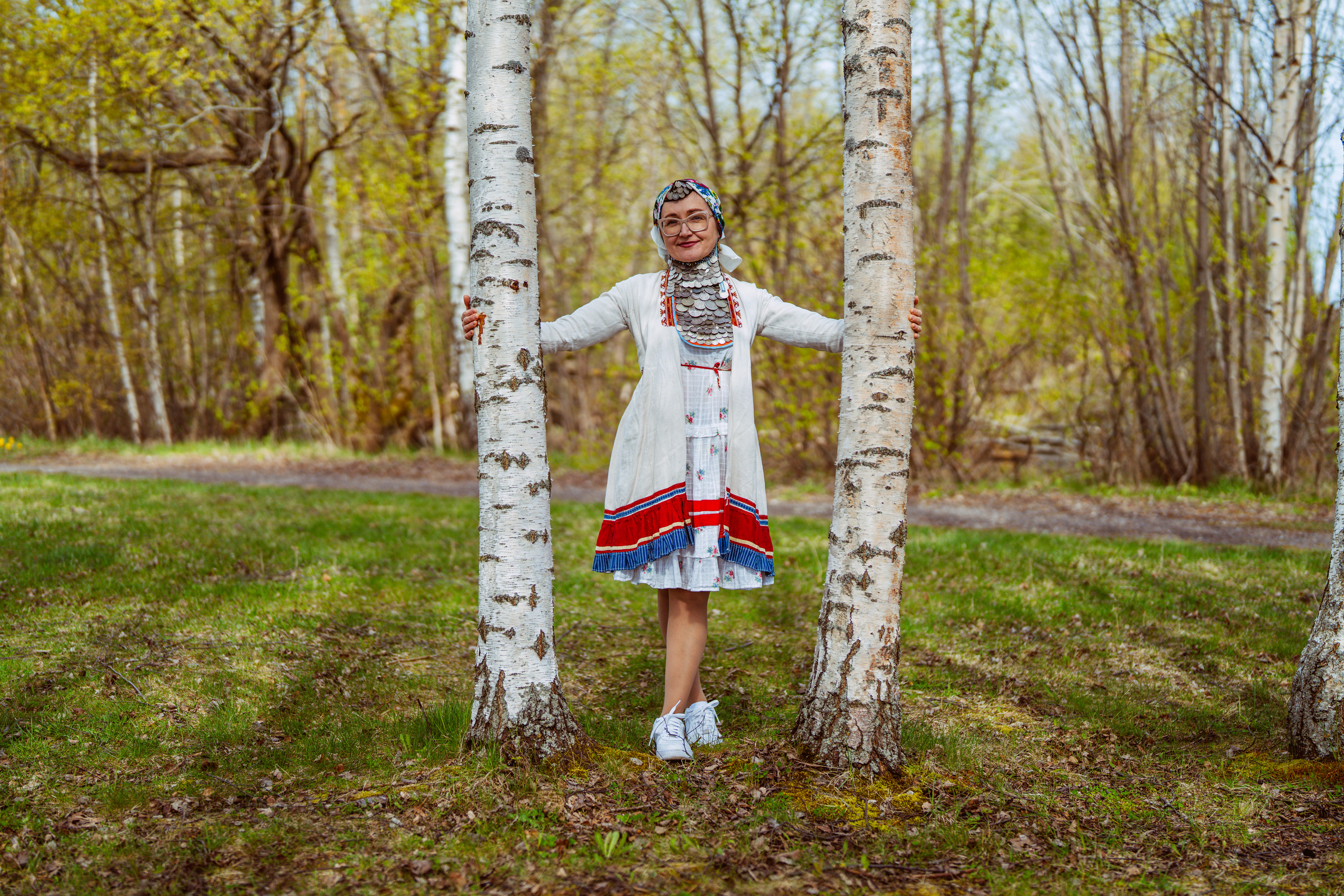Lyudmila came to Estonia via a program for Finno-Ugric peoples. She enrolled soon after in a doctoral program at the University of Tartu. Lyudmila has therefore lived in Estonia for 19 years now, and done different things here. For the past two years, she has worked as a history teacher. Lyudmila is a Mari by ethnicity. The Mari are a Finno-Ugric people who live along the Volga and Kama Rivers in the Russian Federation.
"As soon as we crossed the border, I was surprised by the well-tended yards, houses, and lawns here. This gave me the sense that the people here love their homes and their homeland," says Lyudmila of her first impressions at that time.
"Now, I have already understood that the Estonians really value quality. They would rather buy something that is more expensive and of higher quality than buy something every year that is cheaper and in fashion."
The work culture of the Estonians also caught her eye. "If you order something from an Estonian, they never deliver anything below their own high standards, and they don't rush projects," Lyudmila says. "But to this day, I have a hard time dealing with the way they communicate. If you start to communicate with Estonians, then you have to take into account that they might not answer your calls, because they prefer to send text messages," she laughs.

She really likes the Estonian word emakeel, which means 'mother language.' "In both Russian and Mari, the word for one's first or home language refers to the place where you are born, but in Estonian it means it is your MOTHER language. Because of this, I came to understand that I should speak to my own children in the Mari language. Exactly me, not my husband so much. A child does speak with their mother more, and via their mother learns of different cultural traditions," Lyudmila explains, and adds that her younger child spoke only Mari until the age of 8.
In Estonia, she does miss her relatives, and would like to sit around the table with them and talk about the world. "Maybe that's why I'm actively involved in Mari culture here -- it's like being with my relatives." She also started collecting old pictures, things, and different artifacts, because it's all a way of communicating with her relatives.
Lyudmila likes the musician Karl-Erik Taukar too. His singing, of course, but she says he reminds her of her grandfather. "People used to say that my grandfather was like a kind of Baltic person -- tall, with light hair and light blue eyes, very similar to Karl-Erik Taukar," laughs Lyudmila, who finds similarities between pictures of her grandfather and the singer.
Lyudmila is working to ensure that her children know and understand Mari culture. When her eldest daughter had to do a research project at school, they took one of the pieces of jewellery that belonged to one of her Mari folk costumes, in which the oldest coin dates back to the 18th century, as the object of study. "It was touched by my grandmother, who in turn got it from her mother. It's a rarity, the most precious item in our family," explained Lyudmila.
In Estonia, Lyudmila also met her husband, who had come to Estonia as part of the same programme for Finno-Ugric peoples, but some time before her. "This programme was developed at the start of the Nineties in the last century, during the independence movement in Estonia, with the aim of supporting indigenous peoples. In 1994, when my husband came here, there were about 70 people in the programme, all from Mari-El. They came to study at Estonian universities, then went back to their homeland. Unfortunately, or fortunately, not everyone left, my husband stayed here to wait for me." Now they have two girls in the family, both of whom have Mari names and speak to each other in Mari.
Together with their family, they are trying to preserve the Mari culture in Estonia. "At least once a year, all the Maris living in Estonia get together, we communicate with each other and organize different workshops, so that the children can see how their parents communicate with each other in Mari."
Lyudmila considers herself to be quite emotional, but Estonians, as she sees it, are not so much. "Estonians are very peaceful, they value their words -- if they say something, they choose each word carefully. They also don't waste any words and don't make small talk. Estonians are practical."
If you live in Estonia for a long time, then obviously you pick up some Estonian habits too. Lyudmila has adopted one of these habits herself. "I really like to go to cafes. I remember how surprised I was when I just got here and I saw older ladies seated in a cafe on Tartu Town Hall Square, with their small hats and tiny handbags. They got together, sat in the cafe, and told stories, and it was really nice." Her grandmother never went to a cafe, ever. "They would gather with their girlfriends at home, or visit each other, somewhere else, and if they didn't meet at home or a friend's home, they didn't meet."
"In Mari-El, I'm often asked what I really like about Estonia and I always answer -- I like that everything here is done by the book, there are no big surprises, everything is stable, and can even be at times conservative, but everything is peaceful."
Author: Diana Lorents/HAVAS
Photo: Virgo Haan/HAVAS
